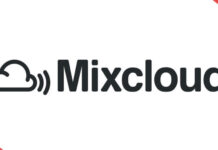In the music industry, artists face a critical decision early in their careers: whether to sign with an independent or major record label.
Both avenues offer distinct advantages and challenges; the choice ultimately depends on an artist’s goals, values, and artistic vision. Here are the key points to consider when choosing the right path for your music career.
Artistic Control and Creative Freedom
One of the most significant differences between independent and major labels is the artistic control and creative freedom artists retain.
The independent route can be appealing for artists who value maintaining their unique artistic voice. Independent labels typically grant artists more autonomy over their music, allowing them to experiment with different sounds and genres without interference from executives.
In contrast, major labels often prioritize marketability and may influence an artist’s creative direction to align with current trends. These big labels offer substantial resources and industry expertise, which can help refine an artist’s sound and boost music distribution on a global scale.
Financial Support and Resources
Finances play a crucial role in any music career. Independent labels usually operate on smaller budgets, which can limit promotional efforts, tour support, and production quality. With their substantial financial resources, major labels can invest heavily in production, marketing, and distribution, allowing artists to reach a broader audience.
However, the financial backing of a major label often comes with repayment obligations and potentially lower royalty rates. While facing financial constraints, independent artists have the advantage of maintaining a larger share of their earnings and rights.
Promotion and Exposure
Visibility in the oversaturated music market is a challenge every artist faces. Major labels have established networks and the financial capability to secure prominent placements on radio, streaming platforms, and other media outlets. This exposure can significantly accelerate an artist’s rise to fame.
On the other hand, independent artists must rely on their promotional efforts and grassroots strategies to build a fanbase. With the advent of social media and digital marketing, independent artists have more tools at their disposal to connect directly with their audience. While this approach can be enticing, it requires more time and dedication.
Contractual Agreements and Long-Term Prospects
The terms of the contract are a pivotal aspect of the decision-making process. Major label contracts often involve long-term commitments, extensive rights ownership, and strict clauses that can impact an artist’s creative freedom even after the partnership ends.
Independent labels, in contrast, usually offer more flexible agreements that allow artists to retain ownership of their work and have a greater say in their career trajectory. Artists must carefully review and negotiate the terms of any contract to ensure that it aligns with their aspirations and long-term goals.
Career Goals and Values
Ultimately, the decision between independent and major labels should be guided by an artist’s goals and values. Some artists prioritize artistic integrity and the ability to craft music without compromise, making independent labels an attractive choice.
Others may seek rapid commercial success and are willing to collaborate closely with major-label professionals to achieve that goal. Artists need to reflect on their priorities, considering factors like creative control, financial security, and the legacy they want to leave within the music industry.
Flexibility and Adaptability
The music industry is constantly evolving, driven by technological shifts, consumer behavior, and trends. Independent artists often have greater flexibility to adapt to these changes quickly. They can experiment with marketing strategies, release schedules, and creative approaches without the need for multiple layers of approval.
Major labels, while having more resources, may need help to pivot as swiftly due to their established processes and larger teams. Independent artists can leverage their nimbleness to seize emerging opportunities and connect with their audience authentically, resonating with the current cultural climate.
Community and Personal Relationships
The choice between independent and major labels also influences the kind of community an artist builds around their work. Independent artists tend to cultivate more personal relationships with their fans, as they often interact directly through social media and live events.
This grassroots approach can create a strong, dedicated fanbase that feels connected to the artist on a deeper level. Major label artists, on the other hand, often have access to larger fanbases but may have a more distant relationship with their audience.
Additionally, independent labels often foster a sense of camaraderie among their roster of artists, leading to collaborative opportunities and shared experiences that contribute to an artist’s growth.
Forging Your Path in a Diverse Music Industry
Embarking on a career in the music industry is akin to setting sail on a vast and uncharted sea.
Whether you’re drawn to the autonomy of the independent route or enticed by the potential of major labels, this decision should ultimately reflect your values and ambitions.
Must Read: Meet Nardo Wick, The American Rapper Who Became Famous Within A Short While



































































